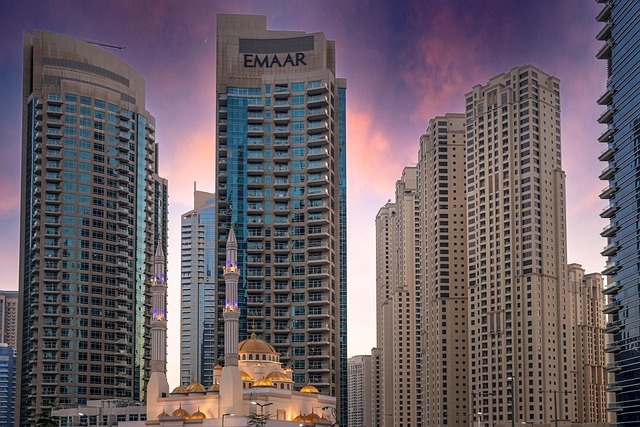UAE Startup Success Boost: How Government Initiatives Propel Innovation
UAE startup success boost hinges on a constellation of government‑led programmes that provide mentorship, capital, regulatory clarity, and world‑class infrastructure. The federal vision to diversify the economy, coupled with targeted incentives from emirates like Dubai and Abu Dhabi, has positioned the UAE as a launchpad for technology, healthcare, green, and fintech ventures. This article dissects the key initiatives, timelines, and measurable outcomes that have turned the UAE into a regional beacon for entrepreneurship.
—
A National Blueprint: UAE Vision 2021 and Talent Development
The UAE Vision 2021, adopted by the Federal Government in 2013, set out a 30‑year roadmap to create a knowledge‑based economy. Central to that vision is the development of a skilled, future‑ready workforce and a business environment that welcomes innovation. The UAE Ministry of Economy (MOE) announced in 2018 that 70,000 new jobs will emerge from the high‑tech sector by 2021, underscoring the urgency of supporting budding enterprises.
Dubai Future Accelerators
– Launch – 2016
– Scope – Partnerships between Dubai government entities and global companies
– Outcome – Over 80 pilot projects delivered across sectors such as autonomous vehicles, fintech, and smart cities
Abu Dhabi Funding for Innovation (A2I)
– Launch – 2020
– Scope – $300 million in grants and equity funding for early‑stage tech and green firms
– Progress – 100+ startups funded, with a 60% conversion rate to commercial viability
These programmes exemplify the UAE’s commitment to creating a talent pipeline that can support and absorb the outputs of its innovative ecosystem.
—
Federal Measures to Accelerate Innovation
1. The UAE’s Comprehensive Startup Framework
The federal government has released a set of guidelines to standardise startup support across emirates. In 2022, the MOE’s “Capital and Infrastructure Initiatives for Startups” directive issued clear rules for licensing, funding, and data ownership. Key features include:
– Uniform Licensing Fees – a capped fee structure for all government‑certified startups.
– Data‑share Incentives – optional open‑data agreements that provide startups with access to private sector datasets.
These standard rules aim to reduce regulatory friction and align local and international market expectations.
2. Abu Dhabi Global Market (ADGM) and Dubai International Financial Centre (DIFC)
These free‑zone jurisdictions not only host international banks but also provide a “sandbox” regulatory environment for fintech startups. The Regulatory Sandbox covers:
– Testing of new fintech services without full compliance costs.
– Access to ADGM’s “fintech hub,” a co‑working space with advanced cybersecurity.
The 2023 Year‑In‑Review report indicates that 30% of fintech pilots launched in 2022 through the sandbox entered full production by end‑2023.
—
Public‑Private Partnerships and Funding Mechanisms
Dubai SME Fund (DSMF)
– Capital – AED 3.9 bn (USD 1.06 bn) in concessional financing.
– Eligibility – Small and medium‑sized enterprises (up to 50 employees) in tech, manufacturing, or services.
– Outcome – Over AED 500 m in funding distributed, averaging a 15‑month turnaround time from application to disbursement.
DSMF’s robust application portal integrates with the Dubai Department of Economic Development (DED) to ensure swift document verification.
Dubai Growth Capital (DGC)
A venture capital arm established in 2019, DGC invests in early‑stage solutions that can be “scaled regionally.” Their 2022 portfolio grew from 5 to 18 companies, averaging a 2‑year return on investment for exits through acquisitions or secondary sales.
Abu Dhabi Investment Office (ADIO)
Targeted at extraterrestrial, bio‑tech, and AI research, ADIO awards grants up to AED 2 m (USD 546k) for cutting‑edge research collaborations. The 2022 grant pool fed 12 projects into the ADIO research cluster, cultivating a 20% research‑to‑product pipeline.
—
Regulatory Reforms Benefiting Startups
1. Ministry of Economy’s Startup Regulatory Sandbox
– Launch – 2019
– Coverage – 30 sectors, from renewable energy to health data analytics.
– Benefits – Fast‑track approvals, partial regulatory waivers, and mandatory data sharing with regulators.
The Sandbox’s early industry adoption saw 12 companies gain regulatory clearance in less than six months versus the standard 12‑month license cycle.
2. Dubai’s Fast‑Track Licensing Initiative
Implemented in 2021, this initiative allows approved startups to receive a business licence in four weeks rather than the typical 8–12 weeks. The DED’s updated digital portal uses AI‑assisted workflows to pre‑qualify applications on the spot.
Fast‑Track Milestones (2023)
– Business licences issued – 3,200 startups.
– Average application processing time – 21 days.
– Revenue impact – AED 20 bn (USD 5.3 bn) in enterprise value added reported by the Chamber of Commerce.
—
Infrastructure and Ecosystems
Smart City Projects
Dubai’s Smart Dubai initiative provides physical infrastructure—high‑speed fibre, satellite gateways, and 5G coverage—that underscores every startup’s operations. Starting 2023, the city will roll out 30 new “smart hubs” in free zones, accommodating 200+ startups with shared testing and trial spaces for AI, IoT, and autonomous vehicles.
Data Centres and Digital Platforms
– Dubai Data Central – A national data hub that aggregates government datasets to support analytics startups.
– UAE Data Trust – Launched in 2022 to enable data sharing between private entities and Dart, under strict privacy regulations.
Tech‑infrastructure partnerships such as those with Emirates’ Emirates Telecommunications and Ooredoo facilitate quick 5G onboarding for SaaS and data‑intensive businesses.
—
Measuring Impact and Success Stories
| Category | Metric (2021–2023) | Impact |
| ——————— | —————– | —— |
| New Startups launched | 2,400+ | Demonstrated pipeline for high‑tech growth |
| Funding raised | AED 10 bn (USD 2.7 bn) | Capital influx encouraging scope. |
| Export revenue | AED 4 bn (USD 1.1 bn) | Entry into global market economy. |
| Employment created | 25,000+ | Competitive advantage in high‑skill jobs |
These metrics align with the UAE’s “Vision 2021” target of generating 30% of GDP from knowledge economies by 2030. They also reflect the role of the UAE’s governmental framework in turning promising ideas into commercial realities.
Spotlight: Emirates Climate Innovators Platform
Launched in 2022, a partnership between the Ministry of Climate Change and UAE Climate Change Initiative, this platform offers:
– Co‑partnerships in renewable projects.
– Clearance for environmental compliance.
The first cohort, consisting of 8 clean‑tech startups, secured AED 1.3 bn in funding, marking the fastest‑moving financing in the UAE’s climate sector.
Spotlight: Sirith Technologies
A Dubai‑based AI company that partnered with the Dubai Future Foundation’s “Deep Tech Accelerator” in 2021. The venture received AED 1 mn in seed funding and a 60‑day pilot with the Dubai Roads and Transport Authority. By 2023, Sirith Technologies commercialised an AI traffic‑management solution reducing congestion by 18%.
—
How to Harness These Initiatives
1. Register Early with MOE’s e‑platform – Ensure compliance with the UAE’s regulatory sandbox framework.
2. Leverage free‑zone benefits – Consider DTCM’s “Freeman” or ADGM’s “One‑Stop” licensing for faster onboarding.
3. Apply for DSMF or DGC funding – Prepare a concise pitch with a clear return‑on‑investment horizon.
4. Use data ports – Centre the business on the UAE Data Trust to leverage government data under strict privacy rules.
5. Participate in local accelerators – Entities such as Dubai Future Accelerators or Abu Dhabi’s Innovation Hub provide mentorship and early‑stage capital.
6. Engage with the UAE Ministry of Economy’s “Startup Lab” – Benefit from policy simulation, market intelligence, and advisory services.
—
Conclusion: A Sustainable Startup Ecosystem
UAE startup success boost is not an accidental by‑product of private sector dynamism; it is the result of intentional, well‑coordinated government strategies spanning funding, regulation, infrastructure, and talent. From the UAE Vision 2021 to city‑wide Smart initiatives, each layer of policy creates a reinforcing loop that nurtures high‑growth startups from conceptualisation to scaling.
For entrepreneurs and investors, understanding and leveraging these programmes translates to sharper decision‑making, lower risk, and higher returns. As the UAE continues to diversify and invest in future‑ready sectors, the government’s role remains pivotal in ensuring that the ecosystem thrives in a competitive global environment.









